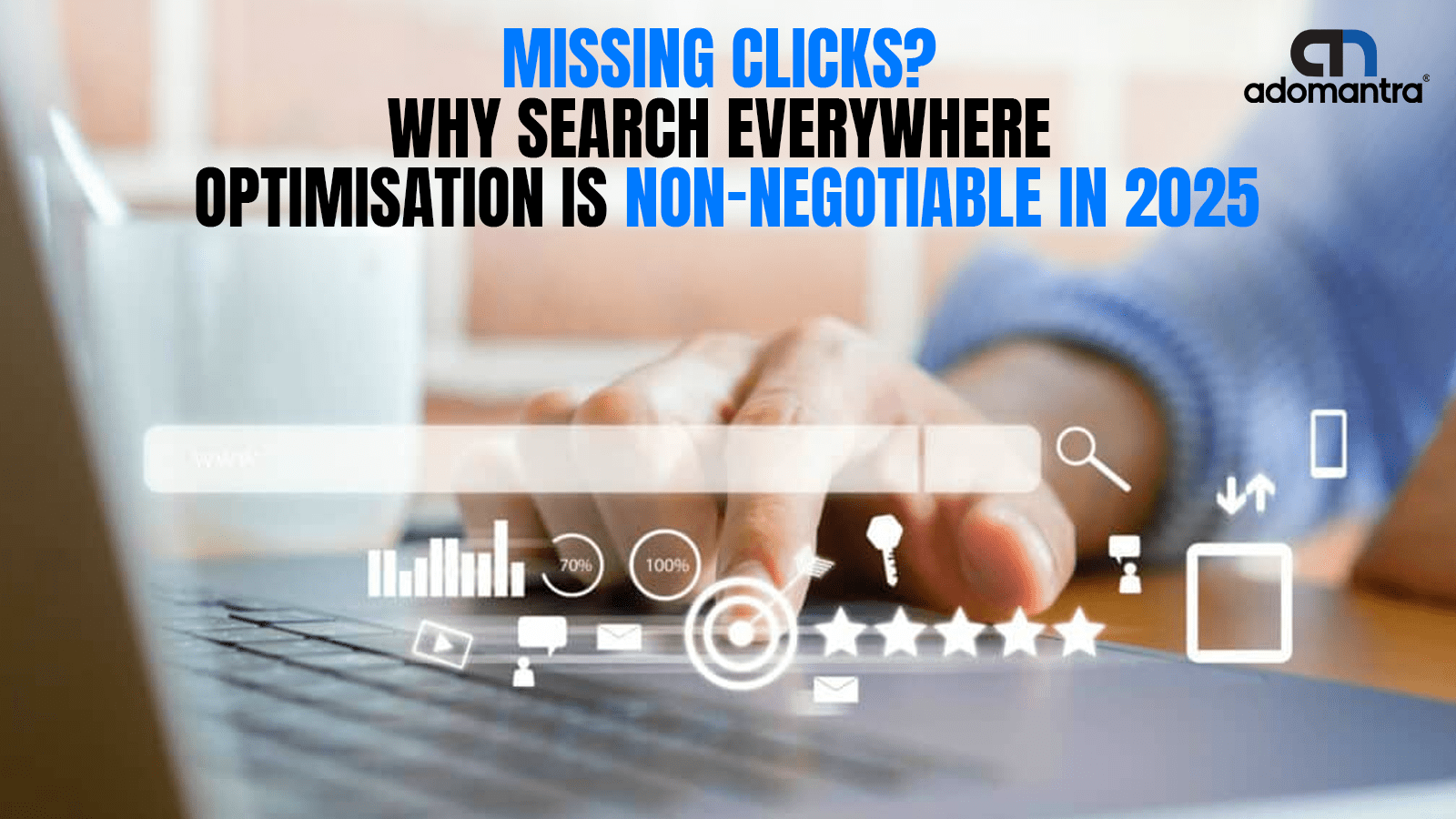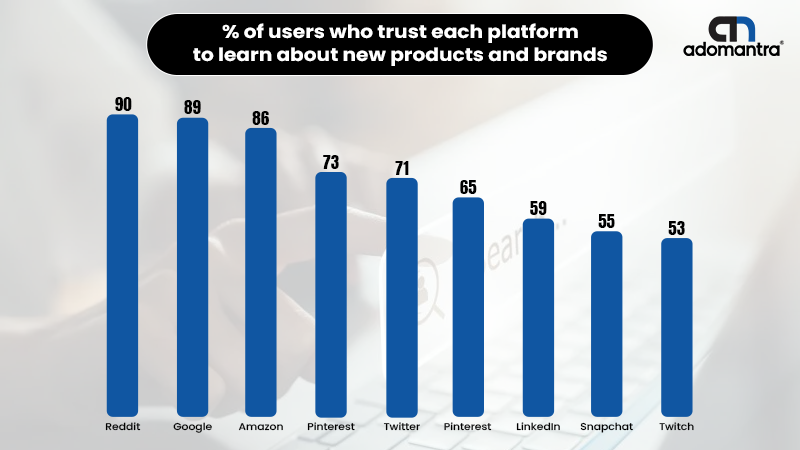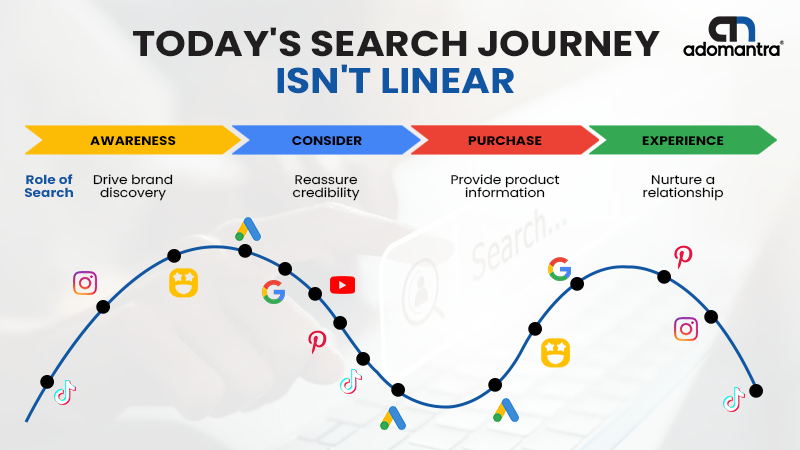
Why You Shouldn’t Ignore Search Everywhere Optimisation in 2025
Search behavior in 2025 is no longer linear. People are not just typing queries on Google. They are asking Alexa, scrolling YouTube, typing in Reddit, and even searching in app stores. This massive shift has changed how we think about visibility. You are either found everywhere your audience looks or you risk getting ignored. Welcome to the era of search everywhere optimisation 2025, where visibility is multi-channel and intent-driven. Businesses must meet their audience wherever search happens on voice, video, text, communities, and marketplaces. This article will help you understand why it matters, how it works, and what you can do now to stay ahead!
What is Search Everywhere Optimisation
Search everywhere optimisation 2025 is the strategy of ensuring your brand is visible across every digital channel where users search for information. It goes beyond Google to include platforms like Instagram, YouTube, Amazon, Reddit, and voice assistants like Alexa and Siri. This approach is user-first. It recognises that consumers use multiple platforms before making a decision. If your brand is not showing up across these platforms, you lose visibility, traffic, and ultimately, revenue.
Where Search Happens in 2025: Platforms You Can’t Afford to Ignore
Search everywhere optimisation 2025 is not just a trend but a reality you must embrace to stay relevant. Let’s break down the key platforms where users are actively searching and how your brand can show up with purpose and precision.
-
Search Engines Still Dominate—but with a New Playbook
Search engines like Google continue to lead the way. As of 2023, Google holds over 91.54% of the global search engine market share (StatCounter). It still drives nearly 58% of global web traffic. That means your visibility on search engines is still your strongest digital asset. More importantly, 75% of users never scroll past the first page (Forbes). That’s a huge opportunity but only if you are showing up with content that reflects quality and intent.
How to stay relevant:
- Align your content with Google’s E-E-A-T framework: Experience, Expertise, Authoritativeness, and Trust.
- Focus on clear, people-first content that solves real problems.
- Invest in long-form, value-rich resources that keep readers engaged.
This is not about playing the algorithm. It is about building content ecosystems that serve users at every step of their journey.

- Social Media Is the New Search Engine for Gen Z
Gone are the days when Instagram was just for fun. Today, 46% of Gen Z uses platforms like Instagram as their primary search engines (Forbes, 2024). Even YouTube has evolved from being just a video site to a core part of user search behavior, with 57% of users turning to it for information.
How your brand can win:
- On Facebook, complete every field in your profile, use keywords in posts, and add interactive CTAs.
- On Instagram, don’t skip alt text for images and be consistent with hashtags and location tags.
- On YouTube, optimize everything: titles, descriptions, thumbnails, tags, and even spoken words.
It is not just about ranking. It is about storytelling that resonates while still being searchable.
-
Podcasts: The Quiet Giant of Search Everywhere Optimisation 2025
Audio is more powerful than you think. According to AnalyticsIQ, 46% of podcast listeners discover new brands through podcast content, and 23% make purchases based on podcast promotions (MediaPost). What does that mean for your strategy? Podcasts are no longer background noise. They are lead generators. Your move:
- Repurpose podcasts on YouTube with smart metadata and keywords.
- Use show notes, transcriptions, and even voice search optimization techniques.
- Focus on themes that align with your expertise. Listeners love actionable insights they can trust.
Audio search is intimate and high intent. Use it to build a trusted connection.
-
Large Language Models: Search Meets Smart Conversations
AI is rewriting the search rulebook. Tools like ChatGPT and Google Bard are offering instant, relevant answers that mimic human interaction. The rise of SearchGPT, an AI search tool within ChatGPT, is reshaping how users expect to get answers, fast, clean, and contextual. A ClickPop study even found that 65.3% of users prefer ChatGPT recommendations over Google results.
How to stand out:
- Use natural, easy-to-understand language.
- Format your content with FAQs, structured data (like JSON), and multimedia support.
- Context is key: Write like you are answering someone’s real-life question.
Search everywhere optimisation 2025 means optimizing for humans, not just bots and LLMs reward you for doing just that.
-
Marketplaces Are the New Front Door
Marketplaces like Amazon, Shopee, and Etsy are not just for transactions; they are where buying decisions begin. According to Jungle Scout, 63% of shoppers start their product search on Amazon. And 54% of millennials prefer buying from marketplaces over individual brand websites (Statista). You cannot afford to ignore this.
How to compete:
- Write detailed, benefit-led product descriptions with strategic keywords.
- Add high-quality visuals and videos with strong metadata.
- Address common buyer questions directly on your product pages.
In a world where convenience is everything, showing up well on marketplaces earns trust fast.
-
Forums and Communities: Search With a Human Touch
Platforms like Reddit and Quora are exploding with user intent. People head here not just for answers but for trusted peer opinions. In fact, 90% of Reddit users say they trust the platform more than traditional search engines when it comes to learning about products. Reddit’s new AI tool, Reddit Answers, is even summarizing top discussions in real time—making community-driven search more accessible than ever.
How to tap into it:
- On Reddit: Choose relevant subreddits, add value, and keep your tone authentic.
- On Quora: Write responses that are thoughtful, sourced, and useful.

- Launch your own forums or community spaces for deeper engagement.
Trust is the currency of 2025. These platforms reward transparency and relevance. How You Can Start Today Here’s how your business can take the first step toward search everywhere optimisation 2025:
- Audit your presence across all digital platforms, not just your website.
- Invest in short-form, searchable content—videos, FAQs, audio snippets.
- Structure your content so it can be picked up by LLMs and voice search.
- Engage in communities. Be helpful, not promotional.
- Use data to track which platforms bring you the most search-driven conversions.
This is not just a marketing trend. It’s the foundation of digital presence moving forward.
Conclusion
Search is no longer limited to Google. Your audience is searching everywhere. With the right strategy and expert support, your brand can lead in this space. Let Adomantra help you optimize across all channels and scale your digital growth in 2025.
Frequently Asked Questions
Q1. What is search everywhere optimisation, and why is it important in 2025?
A1. Search everywhere optimization means ensuring your brand appears across all digital platforms where users actively search—search engines, social media, podcasts, AI assistants, marketplaces, and forums. In 2025, users don’t rely on just Google anymore. They expect answers from TikTok, Reddit, ChatGPT, and Amazon. Optimising across these touchpoints helps brands increase visibility, relevance, and trust in a multi-platform world.
Q2. How is Gen Z changing the way we approach search strategy?
A2. Gen Z heavily relies on social media platforms like Instagram, and YouTube for search instead of traditional engines. They prioritise video content, visual storytelling, and authenticity. To engage them effectively, brands need to create short-form, keyword-optimised, platform-native content that ranks well and delivers real value fast.
Q3. Do I need to change my SEO strategy for AI tools like ChatGPT and Bard?
A3. Yes. AI-driven search assistants value conversational, structured, and context-aware content. You need to write in a natural tone, answer real questions clearly, and ensure your content is formatted for machines (e.g., structured data, metadata, FAQs). This helps LLMs understand and recommend your content in responses.
Q4. How can marketplaces like Amazon help build my brand beyond just sales?
A4. Marketplaces are now discovery engines. Optimising your listings with keyword-rich titles, authentic reviews, and helpful Q&As not only improves conversions but also builds credibility. Many users trust marketplace results more than standalone websites, making it a powerful channel for brand awareness and trust-building







